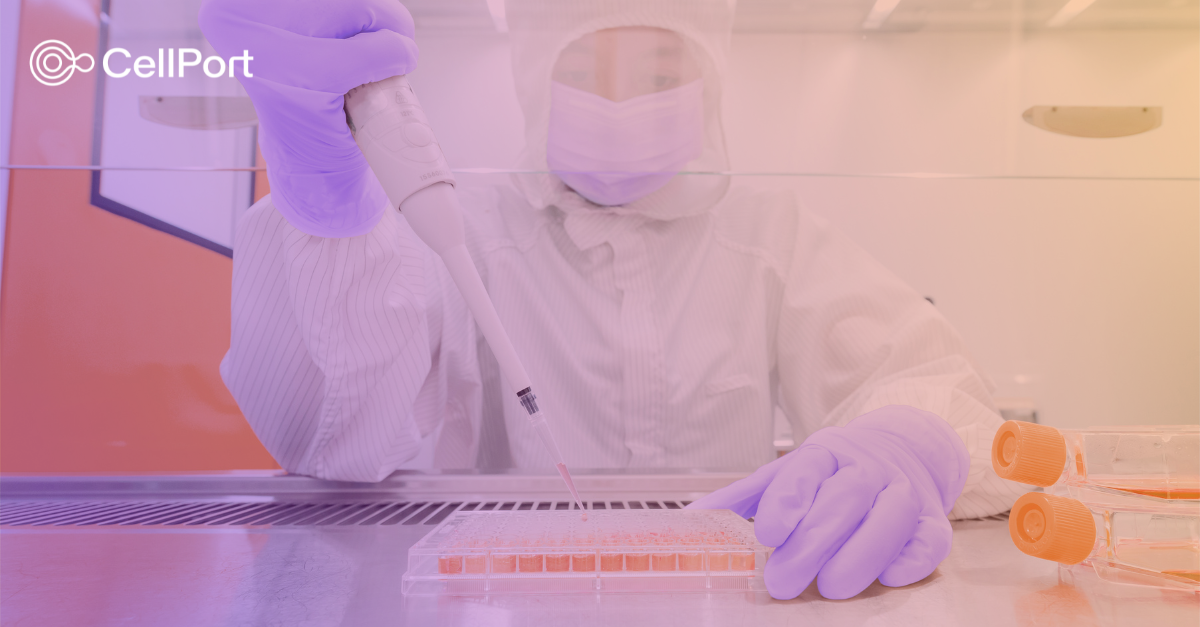Cell Culture
Get more control over demanding cell culture and passaging schedules – CellPort automates workflows & assays to achieve more reliable and reproducible outcomes.

How CellPort Improves Cell Culture Outcomes
Whether you’re producing monoclonal antibodies, vaccines, or other therapeutic proteins, CellPort helps streamline and automate cell culture processes, such as:
Why Scientists Love
CellPort
Watch this guided walkthrough to see a scientist use CellPort in running a real protocol.





Explore More Solutions
Bioprocessing
Reduce your lab-to-market time with optimized upstream & downstream processes.
Learn MoreCellPort Features
Built by our scientists, for your scientists – Here’s how CellPort helps optimize cell culture and passaging.
Digital Protocols
Choose from a library of pre-built or custom digital workflows and assays.
Learn MoreMaster Batch Records
Streamline cell manufacturing in a safe and compliant lab environment.
Collaboration
Maintain communication integrity online for better transparency, traceability, and training.
Learn MoreCustomized Reporting
Monitor the status of your lab with real-time reporting and data analysis.
Secure Cloud
CellPort is built on the cloud platform trusted by 95% of Fortune 500 companies, designed from the ground up with data integrity in mind.
CellPort Learning Hub
Browse our latest resources to learn more about how CellPort streamlines life sciences.
Products Videos
View all VideosLatest Blogs
View all Blogs.png)

CellPort delivers far more than a traditional Electronic Laboratory Notebook (ELN), combining intuitive design with deep, cell-centric functionality.
...Read more

Cell culture involves many detailed steps that require precision and careful tracking. Digital tools, like barcode labels and centralized software, simplify these processes by providing real-time visibility, reducing manual workload, and supporting accurate, efficient workflows. Embracing digitalization is essential for advancing biopharma research with confidence and compliance.
...Read more.png)

Discover how CellPort enhances operations by improving efficiency, data management, and compliance. Learn how our platform supports teams in optimizing workflows and driving success across all stages of development.
...Read more

CellPort optimizes cell culture management, reducing errors and improving efficiency. Track media, schedule tasks, and access cell history in real-time with barcode scanning and custom reporting.
...Read more











.webp)




.webp)













